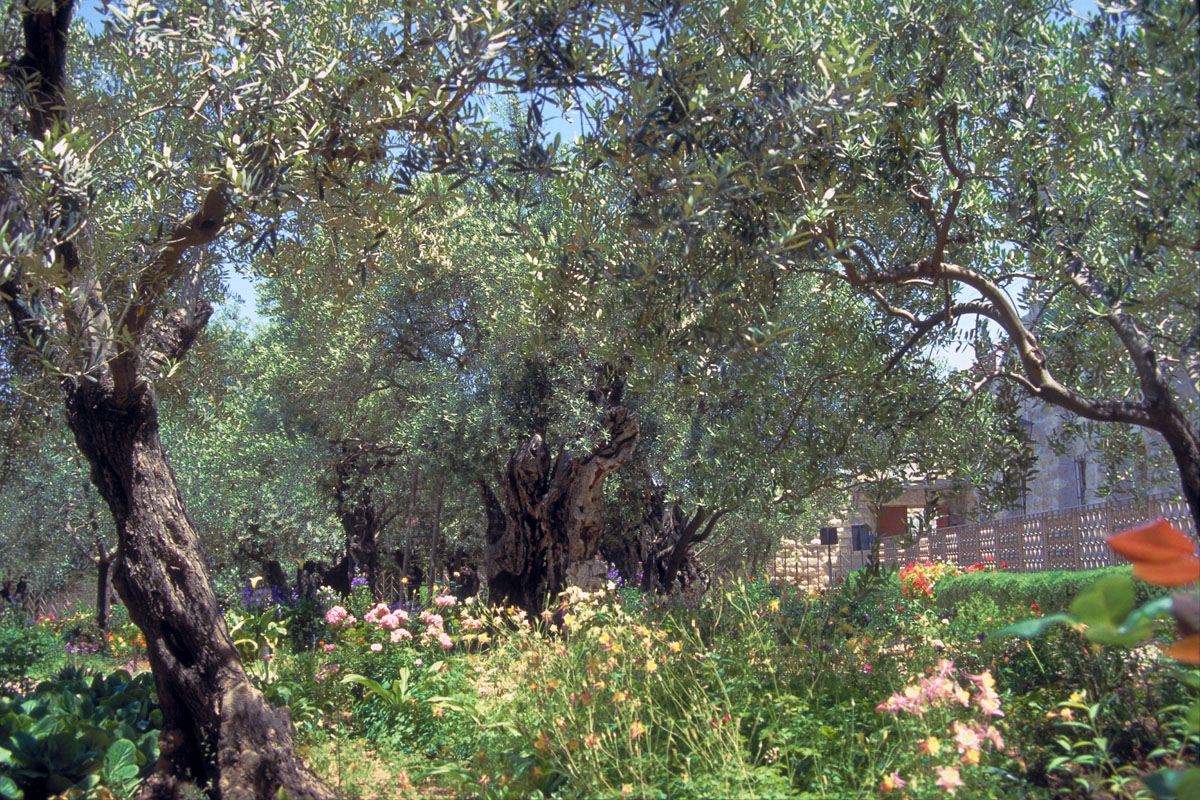
THE ORLANDO DECLARATION
The following was drafted by the staff of Trinity Church, Vero Beach in the Diocese of Central Florida. The rector of this church was a deputy to General Convention and was my rector at Trinity Church, Newport, RI where I worshipped in college. It makes excellent reading - and it would be good to see the Windsor Bishops agree to this declaration when they meet. WHEAT AND WEEDJesus said, “Let both grow together until the harvest; and at harvest time I will tell the reapers, Gather the weeds first and bind them in bundles to be burned, but gather the wheat into my barn.”
I. Jesus is the Only Sure Way Wheat: "I am the Way and the Truth and the Life; no one comes to the Father except through me." John 14:6
The Holy Scriptures record the saving acts and words of the Word made flesh, Jesus Christ. To him alone do we need to listen in order to find life and peace.
Weed: false teachers seduce the faithful by insisting that there are other forms of divine revelation or that the Church can re-interpret the Scriptures without reference to the earliest and plainest interpreters.
We reject any attempt to preach Jesus as other than the Word reveals him to be.
II. Jesus’ Death and Resurrection Wheat: “For I delivered to you as of first importance what I also received, that Christ died for our sins in accordance with the Scriptures, that he was buried, that he was raised on the third day in accordance with the Scriptures and that he appeared to Cephas, then to the twelve.” I Cor. 15:3-5
The earliest believers witnessed with their own eyes the death and resurrection of the man Jesus of Nazareth. They understood those two events as in fulfillment of the prophecies given to the Jews over previous centuries. They maintained the veracity of their witness despite all manner of persecution.
Weed: false teachers, among them those vowed to be “guardians of the faith,” are undermining the historic proclamation upon which the Christian faith rests. They deny the Resurrection. They deny the preaching of Paul.
We reject all teaching and preaching which denies the ancient witness of the Church to the historicity of the death and resurrection of Jesus, called Christ.
III. Holy Baptism Wheat: Jesus said, “Go…baptizing them in the name of the Father and of the Son and of the Holy Spirit, teaching them to observe all that I have commanded you…” Mt. 28:19-20a
The Holy Spirit in Baptism marks the individual as having a new birth. That same Spirit assures that former sins are forgiven, faith is strengthened, and adoption as God’s own child is confirmed. The Sacrament also differentiates the Christian from the non-Christian, thereby sealing the new Christian as part of God’s Holy Catholic and Apostolic Church. But the Sacrament must be done rightly, with the individual or his sponsors prepared to make full renunciation of Satan, sincere repentance for his sins, and complete acceptance of Jesus as his Lord and Savior.
Weed: under the guise of being inclusive, some clergy are offering baptism to all who offer themselves, regardless of whether the offerer is prepared to receive the Sacrament rightly. Such casual baptism degrades the Sacrament and insults the Church. Over the centuries millions of saints have died for no greater an offense than that of being baptized. A rank injustice is done to their memory by cheapening baptism.
We reject the ministries of any who would offer baptism without calling for the renunciation of Satan, the repentance of sin, and the acceptance of Jesus as Lord and Savior.
IV. Holy CommunionWheat: “For I received from the Lord what I also delivered to you, that the Lord Jesus on the night when he was betrayed took bread, and when he had given thanks, he broke it, and said, ‘This is my body which is for you. Do this in remembrance of me.’ In the same way also the cup, after supper, saying, ‘This cup is the new covenant in my blood. Do this, as often as you drink it, in remembrance of me.’ For as often as you eat this bread and drink this cup you proclaim the Lord’s death until he comes.” I Cor. 11:23-26
The grace conveyed in the Sacrament may only be received in a worthy manner. That worthiness is a gift of the Holy Spirit only for those baptized believers who are repentant and who approach the Sacrament reconciled with the Lord and with others. To those who receive it thus, the Sacrament yields the fruit both of remembrance and of presence.
Weed: clergy who promote the casual reception of the Sacrament in the name of hospitality in fact deceive those who so receive. The Scriptures make it plain that to receive the Sacrament in an unworthy manner invites God’s judgment, not his joy.
We reject any teaching and practice which invites the unbaptized to share in the Lord’s Supper. Moreover, we reject as false fellowship all casual use of the Sacrament.
V. Beauty and Order in Worship Wheat: “…[in worship] all things should be done decently and in order.” I Cor. 14:40
While the Holy Spirit bestows differing gifts on individuals, when the Body comes together to worship, behaviors which unite should be paramount. Order and decency in worship are not synonymous with dullness; rather, they seek to unite the believers. When so united, the believers transcend individual idiosyncrasies and preferences in favor of lifting one heart to the Lord of all.
One of the great strengths of historic Anglicanism has been its Book of Common Prayer. Indeed, other denominations have used it as a model for corporate worship. More important even than the Book, however, has been the tacit agreement of all present to follow the service as printed and as prayed.
Weed: in many churches today the rubrics of the Book of Common Prayer, indeed, the use of the Book of Common Prayer, are ignored. In some cases the clergy simply cut and paste whatever liturgy they happen to like that week. In other cases the laity replace whatever words they dislike, for whatever reason, with words they do like. Example -- Book of Common Prayer, page 355 [emphasis added]:
Priest: Blessed be God: Father, Son, and Holy Spirit.
People: And blessed be his kingdom, now and for ever. Amen.
Commonly heard in worship today:
Priest: Blessed be God: Father, Son, and Holy Spirit.
50% of People: And blessed be
God’s kingdom, now and for ever. Amen
The effect of such ad hoc editing of the order of worship is to create disorder. The disorder is such that one worshipper is left wondering why another made that change. Yet another worshipper gets annoyed immediately at the loud editing. Ultimately, the result is to deflect the worshippers’ attention from the Lord they would worship to each other and, even more sadly, each one to himself.
We reject the anarchy of individual editing in common worship. We decry its prevalence in the pews and in the chancels of our churches.
VI. Authority in the Church Wheat: Jesus said, "You know that the rulers of the Gentiles lord it over them, and their great ones are tyrants over them. It will not be so among you; but whoever wishes to have authority over you must be your servant." Matt. 20:25-26
The orders of ministry have been entrusted to the Church by Scriptures and by early tradition. They are given both to remind the whole Body of its ministries and, for the ordained, to charge them to serve the Church and the world in Christ’s name. The highest trust placed in the ordained leadership of the Church is the cure of souls in the power of the Holy Spirit.
Weed: among the ordained leadership in the Episcopal Church today one can find wolf men dressed as shepherds. Their exercise is not service but authority; not servanthood but lordship. Ignoring the higher trust of the faith once delivered to the saints, they invoke “fiduciary responsibility” to justify claiming power and property not their own. In so doing, they seek to devour the houses of prayer which widows’ mites have built.
We reject any exercise of ministry in the Church which seeks to overwhelm simple justice with power, privilege, and devious plans. We reject any use of canonical authority which wants to beat clergy into submission under false leadership.
VII. Balancing Evangelism and ServiceWheat: Jesus said, “Go therefore and make disciples of all nations…” Mt. 28:19 Jesus said, “Truly, I say to you, as you did it to one of the least of these my brethren, you did it to me.” Mt. 25:40
The delicate balance of our Lord’s two great orders requires the Church always to be vigilant not to prefer one over the other. The Church at work in the world needs to look to feed the soul as well as the body. It is not faithful to our Lord to omit one in favor of the other. William Wilberforce, the great English layman who led the abolition of slavery in that nation, may be the best recent example of an evangelical who cared for others’ bodies as well as their souls.
Weed: some in the Church speak of “mending Creation” as if were possible for us creatures so to do. By “mending Creation” they mean the righting of social ills to the neglect of spiritual ills, as if human beings were matter alone and not spirit. The Examination in the Baptismal Office is thereby effectively reduced from three renunciations –
- Do you renounce Satan and all the spiritual forces of wickedness that rebel against God?
- Do you renounce the evil powers of this world which corrupt and destroy the creatures of God?
- Do you renounce all evil desires that draw you from the love of God?
-- to one alone, that of renouncing the “evil powers of this world…”
Historically, some have committed the equal and opposite error, that of seeking to cure souls while neglecting the needs of bodies.
We reject any error of balance in the mission of the Church. False and injurious teachers suggest that, since there is any number of paths to the divine, to proclaim the saving grace of Jesus Christ alone is to speak intolerance. Likewise, we reject a hollow piety which refuses to aid the needy unless they submit to the Gospel.
VIII. Jesus Changes LivesWheat: “By [God’s] great mercy we have been born anew to a living hope through the resurrection of Jesus Christ from the dead…” I Pet. 1:3
Being born anew in Christ offers new life for the believer. In Christ, he can live in the confidence that the Holy Spirit wants to make him a better person. He can share in working out God’s purpose for the world. He can look forward in joy to meeting Christ face to face. The Holy Spirit wants to transform his future without regard to his past, in order to free him to serve Jesus in the present.
This transformative power of the Holy Spirit is of unspeakable comfort to those trapped by their past, to those locked into addictions, and to those tired of life.
Weed: rather than preach that transformative power, many pulpits today ring with hollow words of affirmation. Those who seek preachers who make them comfortable, and those preachers who seek listeners who make them comfortable, have formed an unholy alliance. The theology of that alliance speaks of forgiveness but not sin, heaven but not hell, justice but not morality.
We reject those who preach the gospel of affirmation without the Word of transformation. They are false shepherds who will run away when the first sign of conflict appears.
Trinity ChurchBy D. Lorne Coyle, MDiv, Robert K. Stull, MA, Valerie A. Balius, MDiv, Jonathan G. Robbins, MDiv, and Brady Johnson, MMus, at Vero Beach, Florida, May, 2007, who invite you to signify your support of the Declaration.
 BB NOTE: Lord Carey, Archbishop of Canterbury prior to Rowan Williams, has written a letter to the Church of England Newspaper where he takes on Kenneth Kearon, Anglican Communion Secretary, regarding his recent statements justifying the current withholding of Lambeth Invites to the CANA and AMiA bishops. Oops.
BB NOTE: Lord Carey, Archbishop of Canterbury prior to Rowan Williams, has written a letter to the Church of England Newspaper where he takes on Kenneth Kearon, Anglican Communion Secretary, regarding his recent statements justifying the current withholding of Lambeth Invites to the CANA and AMiA bishops. Oops. 






























